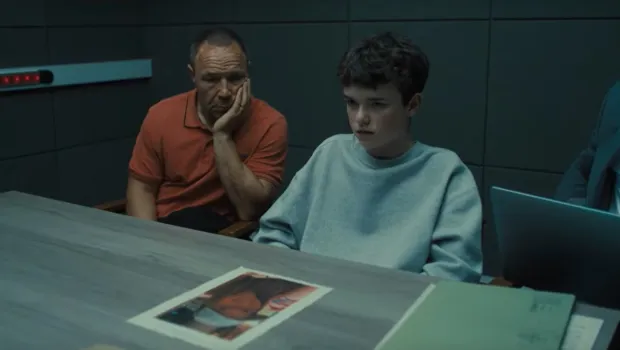Netflix’s recent British miniseries, ‘Adolescence,’ plunges into a theme of urgent contemporary relevance: the profound psychological and social impact of digital immersion on young people. The narrative centres on a teenage boy who fatally stabs a female classmate. Opening with his brutal arrest, the series immediately flags its central concern: the perilous intersection of a coming-of-age lived through social media and the harrowing consequences that can explode into the physical world.
Each hour-long episode of ‘Adolescence’ is presented as a single, unbroken take. This ambitious cinematographic choice seems intended to offer an unfiltered, almost indifferent gaze upon the unfolding reality, mimicking the relentless stream of online content. However, the technique often feels less like an organic storytelling device and more like a conspicuous gimmick. Instead of seamlessly serving the narrative, the form frequently competes with it, at times overshadowing the raw truths it ostensibly seeks to portray. This relentless focus on technical execution can distract from, rather than deepen, the viewer’s engagement with the characters’ plights.
This tension between stylistic bravura and narrative substance is mirrored in the story itself. While ‘Adolescence’ attempts to chart the psychological descent of its protagonist, it ultimately constricts its inquiry. The series dedicates significant screen time to the boy’s fraught relationship with his father and his confused, often toxic, understanding of masculinity. These are undoubtedly important factors. Yet, by overemphasizing these admittedly crucial aspects, the series largely neglects a more incisive exploration of broader, systemic issues.
The pervasive influence of social media algorithms, the nature of online validation, the echo chambers that can foster extremism, or the subtle ways power structures are replicated and amplified in digital spaces – these elements feel underdeveloped. A more compelling and ultimately more illuminating series would have dared to weave these complex societal threads into the personal tragedy. Instead, ‘Adolescence’ gestures towards a critique of digital life but pulls back, offering a narrower, more conventional psychological drama that struggles to escape the shadow of its own formalistic ambitions. It leaves the audience pondering not only the tragedy depicted, but also the missed opportunity for a richer, more systemic exploration of why such a tragedy might occur in the first place.




Leave a Reply